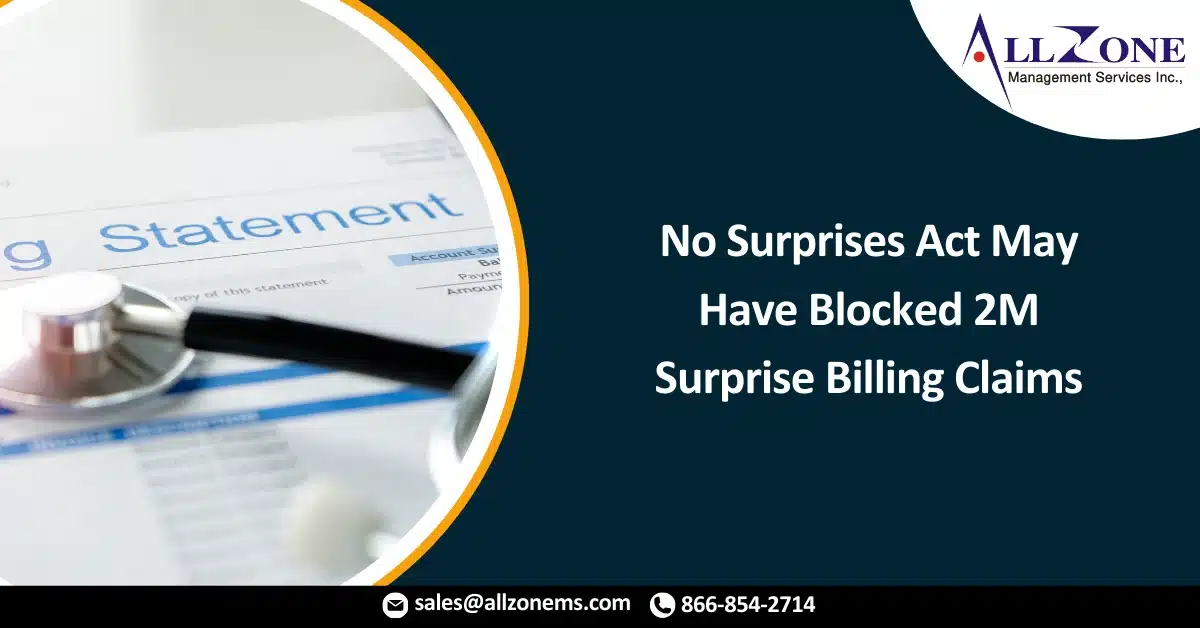The No Surprises Act came into effect in December 2021, potentially averting countless instances of unexpected billing claims within its initial two months of implementation.
By May 24, 2022, the No Surprises Act had already thwarted over two million cases of surprise billing claims during its initial two-month span, as per a survey conducted by AHIP and the Blue Cross Blue Shield Association (BCBSA).
Matt Eyles, the President and CEO of AHIP, remarked that the No Surprises Act had put an end to the practice of unforeseen medical billing for the most part, providing much-needed relief to numerous patients who had encountered unforeseen and unaffordable medical expenses. He praised the Administration and Congress for this significant stride, while also emphasizing the need for further efforts to ensure that medical emergencies don’t lead to financial crises.
The survey, carried out in April 2022, focused on the first two months of the No Surprises Act’s enactment, namely January and February 2022.
During this survey, 31 commercial health plans and group health plans were approached by AHIP and BCBSA to disclose the number of claims they had received that might have resulted in surprise bills had the No Surprises Act not been in place. These claims encompassed emergency services provided by out-of-network providers, as well as non-emergency services and products offered by out-of-network providers within an in-network facility.
The participants in the survey represented a total of 115 million commercial lives, constituting more than half of the entire commercial market.
Based on the responses received from these participants, AHIP and BCBSA estimated that around 600,000 claims, which is less than one percent of all claims, would have led to surprise billing had the No Surprises Act not been implemented.
Although this figure might seem relatively small, the significance of evading surprise bills cannot be underestimated. However, this number still surpasses the government’s forecast of 17,000 independent dispute resolutions annually as a result of the No Surprises Act.
Furthermore, AHIP and BCBSA acknowledged that claims from the initial two months of the year might not have been fully processed due to the intricate nature of claims management, which often requires days or even a month to complete.
Taking into account the potential delays in claim processing for January and February 2022, the survey findings were contextualized using historical trends.
The researchers calculated the average count of surprise bills per enrollee and used data from the US Census Bureau in 2020, prior to the onset of the COVID-19 pandemic, to ascertain the total number of commercial enrollees.
Their analysis indicated that the actual number of prevented surprise bills could be in the range of 2 million claims or even more. If accurate, this suggests that the No Surprises Act might result in over 12 million avoided surprise bills throughout 2022.
Kim Keck, the President and CEO of BCBSA, stated that there should be no room for surprise medical bills within a healthcare system that prioritizes people. She highlighted that not long ago, emergency hospital visits could lead to exorbitant and unexpected medical bills. The No Surprises Act, according to her, has eradicated this loophole and provided undeniable financial protection for millions of Americans.
The No Surprises Act encompassed incentives for healthcare providers to join health plan networks, while also pushing health plans to maintain an adequate number of contracts to meet network adequacy standards. Additionally, the Act introduced an independent dispute resolution mechanism designed to shift the burden of payment away from patients when there’s a disagreement between the hospital and the payer regarding payment.
A legal challenge against the interim final rule claimed that the rule had negative implications for provider networks, but both AHIP and BCBSA contested these assertions.

